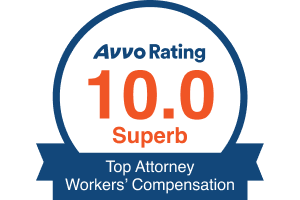PTSD
Work Injury Lawyer Advocating for Spartanburg and Greenville Claimants
The workers’ compensation system is designed to ensure that employees receive the benefits that they need after suffering an injury that occurred during the course and scope of their employment. Although physical injuries clearly fall within the scope of compensable injuries, there are some mental conditions that may also fall within the workers’ compensation system. One of the most common mental issues that people tend to experience after a traumatic event is PTSD, or post-traumatic stress disorder. Although many people associate PTSD with the military, the mental condition may occur following any traumatic event. Greenville and Spartanburg work injury lawyer Patrick E. Knie is available to assist you with pursuing benefits and mental health treatment.
Understanding South Carolina’s Workers’ Compensation System
If you were involved in an accident or another trauma-inducing event during the course and scope of your job, and it subsequently affects your ability to perform your job responsibilities, you may be entitled to workers’ compensation benefits. The first step in seeking benefits is to initiate a claim with your employer’s workers’ compensation insurer. It is important to report your injury promptly so that you can receive benefits as soon as possible, and so that the full extent of your injury is documented. This also enables you to receive medical treatment in a timely manner. Once the claim is initiated, the insurer will ask that you submit to a medical examination. During this exam, the physician will assess whether your condition is permanent or temporary and whether it is partial or total. It is critical to be honest during this examination and ensure that you provide an accurate description of the injuries that you are experiencing and how they affect your work life and your daily life.
Once the nature and scope of the condition is assessed, the insurer will determine the amount of benefits that the worker should receive and the duration of these benefits. An injury deemed partial and temporary will typically receive a limited-term benefit payment period, while a total and permanent injury may render the worker eligible for extensive benefits, including Social Security Disability in some cases.
Seeking Benefits for PTSD
PTSD may result from virtually any situation if the impact was traumatic for the victim. There are many mental as well as physical manifestations of PTSD, including flashbacks, nightmares, and fixation related to the traumatic incident. Some individuals tend to withdraw, experiencing feelings of guilt for having survived the event or feeling as if they should have done something to prevent it from happening, even if that was not possible. Bursts of stress, anger, outbursts, and other emotional fluctuations are additional symptoms associated with PTSD.
Unlike physical injuries that are capable of direct observation, mental health issues often require substantive treatment and analysis. Part of the benefits package includes compensation for any medical treatment required to address the injury. In instances involving PTSD, this may include therapy and counseling sessions to help the employee cope with the condition. It usually also covers any medication, physical therapy, or other rehabilitative measures that the treating physician may prescribe.
Seek Guidance From an Attorney in Spartanburg or Greenville
After suffering a work-related injury, it may be difficult to determine an appropriate way to proceed. Workers’ compensation attorney Patrick E. Knie has assisted injured employees throughout South Carolina, including in Spartanburg, Greenville, and many areas of Cherokee, Union, and Laurens Counties. When it comes to mental health, some people are hesitant to seek the treatment that they need and unsure whether it will be covered. We can advise you about your options and advocate for your rights while protecting your privacy during the process. To set up a free consultation with a compassionate attorney, call us now at (864) 582-5118 or contact us online.







